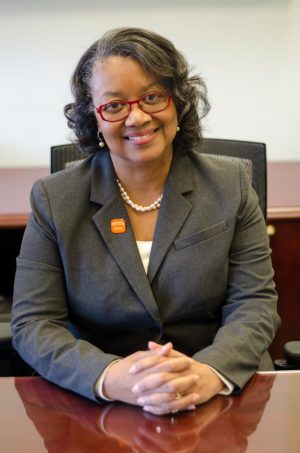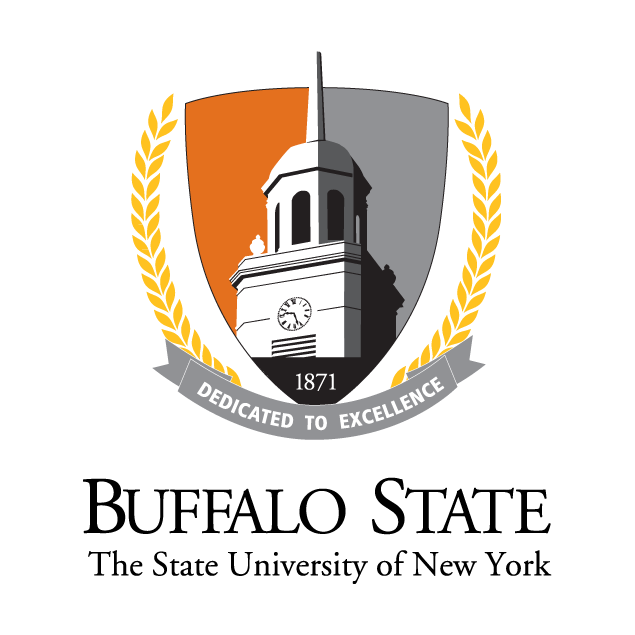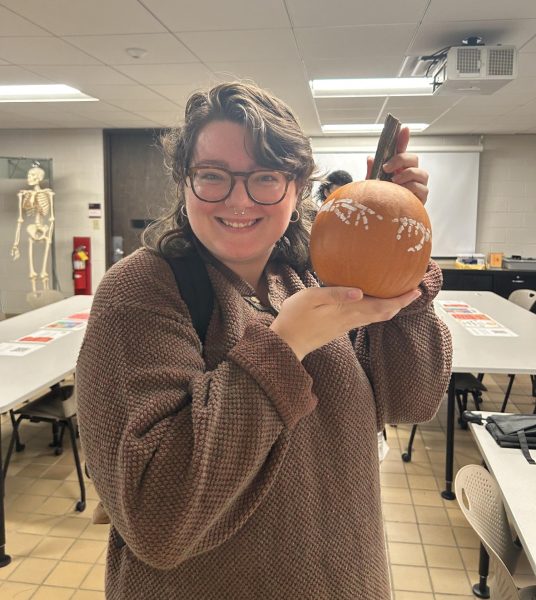Administrative Spotlight: President Katherine Conway-Turner
March 11, 2019
Within the past year, SUNY Buffalo State’s administration has undergone some big changes; many have likely never even noticed, and that is the problem.
While the administrators are the ones who handle the big questions, concerns and problems on campus, they are also the ones working behind the scenes to maintain and improve the quality of campus life for students, faculty and staff.
The Record is pleased to announce its Administrative Spotlight series to familiarize the Buffalo State community with those individuals who run the operation of an engaged and nationally-respected urban campus, and who better to start with than the highest office in campus administration?

Dr. Katherine Conway-Turner accepted her position as Buffalo State’s ninth president in 2014 and under her leadership, Buffalo State has maintained national acclaim as one of the most diverse, affordable and military-friendly colleges in the U.S.
With implementations like Bengals Dare to Care Day and the President’s Certificate of Recognition for Community Engagement, she has prioritized and enhanced the experience of civic engagement among students.
Having worked in other college administrations prior to her arrival at Buffalo State, including serving as provost and vice president for academic affairs at Hood College in Maryland and at SUNY Geneseo, Conway-Turner has devoted her career to higher education.
The key difference between being president of a campus and other administrative roles, however, is overseeing a larger population and many more components, much like a city, she explained.
“In many ways, when I talk to mayors, being a college president is very similar because you have all the people, but you also have all the buildings and the utilities and when anything goes wrong, even though you have someone in charge of it, you’re worrying about it as well,” she said.
She is not only a leader on-campus, however. In January, she was elected as a commissioner for the Middle States Commission on Higher Education, where she reviews colleges and universities from seven states and the U.S. Virgin Islands to determine accreditation for different institutions. She attributes her successes to her own passion for academia that she fostered when she was a student.
“The only reason that I went into higher education is that I really enjoy working with college-aged students,” she said. “My kids tell me that I so loved college, that I never left.”
Conway-Turner’s value of higher education, both as a first-generation college student and as an administrator, inspired her primary goals when she arrived at Buffalo State.
“The role of a president is to really lead your institution forward,” she said, “so one of the things that I wanted to do initially was to make sure that we worked on our next strategic plan.”
Established in 2016, Buffalo State’s most recent strategic plan is a five-year proposal that was built around, and is intended to enhance, the student experience.
The plan was designed specifically for students navigating and seeking opportunities within the urban environment surrounding the campus.
“Buffalo State is an urban-engaged campus, so that frames a lot of the work that we do;” Conway-Turner said. “preparing students to understand the urban environment, to be able to work wherever they go…so that the great things that happen on campus are also benefitting the larger community in lots of ways.”
She noted some of the benefits that students have at an urban-engaged campus, like a wider array of career and internship opportunities and a diverse and culturally competent community. She also described the advantages of overseeing a campus that is so involved with its surroundings.
“Being an urban environment really just provides so many more layers to what is possible for our institution and what is possible in terms of our contribution to the environment as well,” she said. “I think Buffalo is a really great city, and there are just so many opportunities for our students.”
As there are advantages, there are also challenges of managing an urban-engaged campus. Conway-Turner admits that her administration’s goals of closing the financial gap for every student and graduating 100 percent of first-year students in four years are often thwarted by the financial struggles faced by many scholars.
“I understand, just from working with thousands and thousands of other students, the likelihood of the student coming back is just diminished,” she said, “so you’re always working with students with whatever other issues, whether personal issues, health issues, family issues, to help them navigate the choppy waters.”
She explained the importance of making time to be attentive to the individual needs of students, especially when competing factors can interfere with their academic pursuits.
“I have been in higher ed for over 30 years, and sometimes people want to give advice, but you can’t give advice until you know what the person needs,” she said. “Slow down, yes; but also listen to what the person says and then that’ll give you the opening to know what you might share with them that could be helpful.”
In addition to offering emotional support, the president also stays connected with students by supporting their creative and academic endeavors. While she appreciates various forms of student-driven events, including campus-wide research conferences and musical performances, she admits that she especially enjoys attending campus theatre productions.
“I really enjoy watching the development of our students in the theatre program and particularly getting to see them in more than one as they progress through; that is really exciting,” she said.
As she approaches her fifth year at Buffalo State, President Conway-Turner wants her students to understand that she remains devoted to seeing them succeed and thrive at Buffalo State and beyond.
“I hope they know that they have a president that really is here to support each and every student toward their success,” she said. “Even if I make an unpopular decision, I hope they understand that it’s all about moving our students to success and doing all that I can do to make sure all our students are as successful as they can be.”




